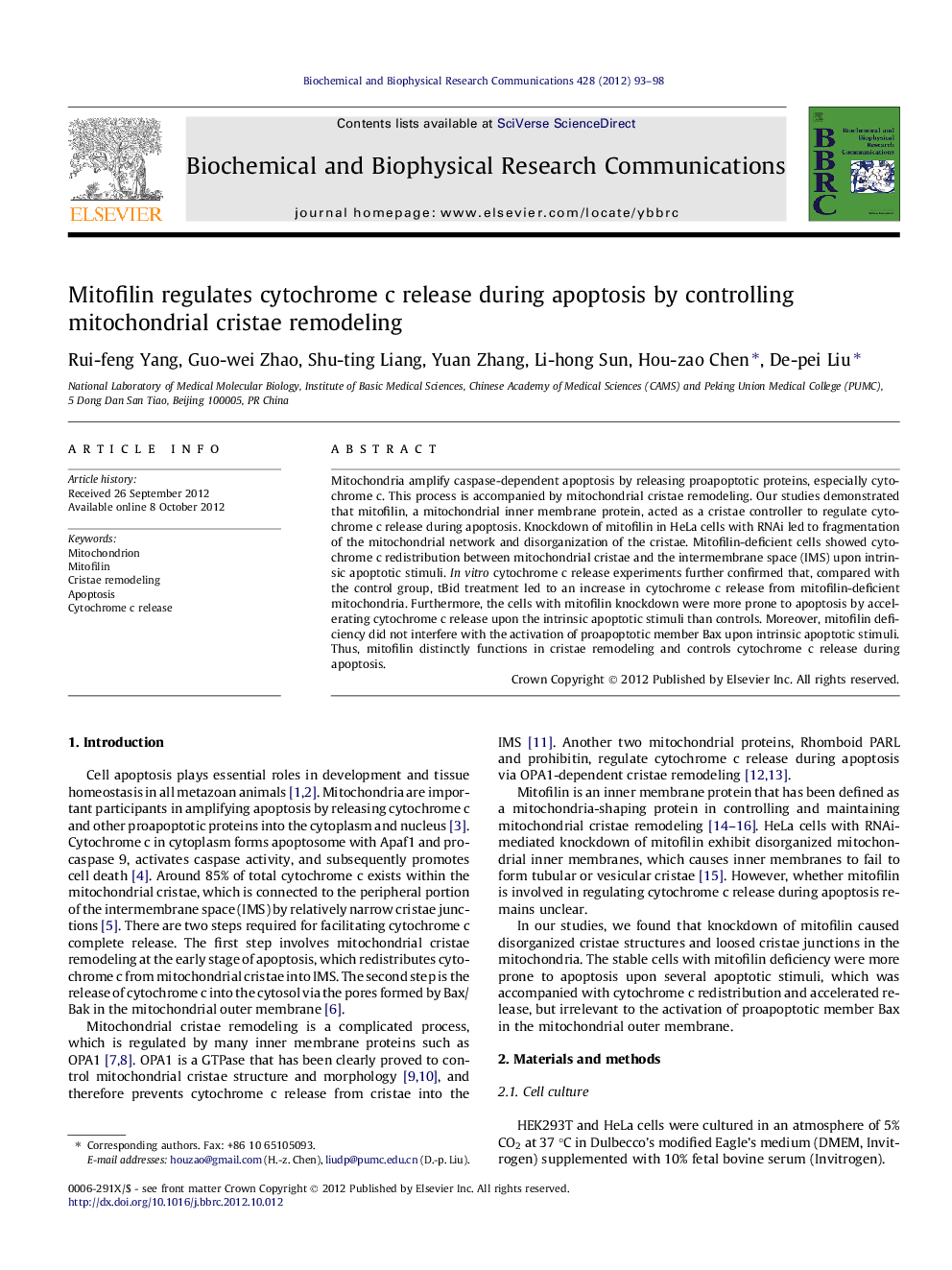| Article ID | Journal | Published Year | Pages | File Type |
|---|---|---|---|---|
| 1929032 | Biochemical and Biophysical Research Communications | 2012 | 6 Pages |
Mitochondria amplify caspase-dependent apoptosis by releasing proapoptotic proteins, especially cytochrome c. This process is accompanied by mitochondrial cristae remodeling. Our studies demonstrated that mitofilin, a mitochondrial inner membrane protein, acted as a cristae controller to regulate cytochrome c release during apoptosis. Knockdown of mitofilin in HeLa cells with RNAi led to fragmentation of the mitochondrial network and disorganization of the cristae. Mitofilin-deficient cells showed cytochrome c redistribution between mitochondrial cristae and the intermembrane space (IMS) upon intrinsic apoptotic stimuli. In vitro cytochrome c release experiments further confirmed that, compared with the control group, tBid treatment led to an increase in cytochrome c release from mitofilin-deficient mitochondria. Furthermore, the cells with mitofilin knockdown were more prone to apoptosis by accelerating cytochrome c release upon the intrinsic apoptotic stimuli than controls. Moreover, mitofilin deficiency did not interfere with the activation of proapoptotic member Bax upon intrinsic apoptotic stimuli. Thus, mitofilin distinctly functions in cristae remodeling and controls cytochrome c release during apoptosis.
► Mitofilin deficiency caused disruption of the cristae structures in HeLa cells. ► Mitofilin deficiency reduced cell proliferation and increased cell sensitivity to apoptotic stimuli. ► Mitofilin deficiency accelerated the release of cytochrome c from mitochondria. ► Mitofilin deficiency accelerated STS-induced intrinsic apoptotic pathway without interfering with the activation of Bax.
